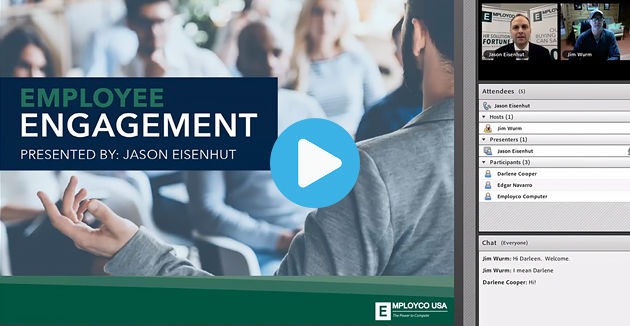Human resources expert explains how victims should confront workplace bullying
 Workplace bullying is a sadly common issue that many employees face on a regular basis. And, some employees are at higher risk of workplace bullying than others. A recent online study led by James Cook University in Australia found that these risks for bullying include being young as well as being a woman.
Workplace bullying is a sadly common issue that many employees face on a regular basis. And, some employees are at higher risk of workplace bullying than others. A recent online study led by James Cook University in Australia found that these risks for bullying include being young as well as being a woman.
“The researchers discovered that female employees are at a higher risk of being bullied, and the same is true for younger employees,” said Rob Wilson, human resources expert and President of Employco USA. “Sadly, simply for the ‘crime’ of being a woman or being young in the workplace can increase your risk of harassment while on the job.”
Other recent research bears out these findings, including a recent study performed by the University of Arizona which showed that female employees are targeted more with rude remarks and unkind behavior than male employees.
So how should employees address these situations and defuse workplace bullying?
“First, you need to change your thinking,” says Wilson, “It’s not your job to make a bully leave you alone. Your only job is to show up and perform the duties for which your boss hired you. While being firm and clear about your boundaries can help stop a bully, ultimately, some people are going to behave badly no matter what you do.”
So, Wilson says, go to H.R.—if you are fortunate enough to work for a company which is large enough to have one. “If that’s not a possibility, then go to someone in management whom you trust, whether it’s your company president or the person who helped mentor you when you first joined the firm.”
Some companies, such as those companies for which Employco offers support, have a firm which helps to handle H.R. issues, and in these cases there might be a 1-800 number which you can call.
“I find that our clients’ employees feel much more comfortable coming to us about bullying and other office harassment, instead of speaking to someone in their own company,” says Wilson. “They feel safer and the conversation feels more private and less biased. Creating a safe atmosphere for people to come forward is one of the best ways to help prevent workplace bullying.”
For more on this topic, please contact Rob Wilson at rwilson@thewilsoncompanies.com.



 In the wake of numerous school walk-outs across the country, many students as well as teachers are facing potential consequences for their decision to express their beliefs about the Second Amendment. This begs the question: How much free speech is truly allowed in the workplace, and can you get in trouble for expressing anger about gun control or our President or anything in between?
In the wake of numerous school walk-outs across the country, many students as well as teachers are facing potential consequences for their decision to express their beliefs about the Second Amendment. This begs the question: How much free speech is truly allowed in the workplace, and can you get in trouble for expressing anger about gun control or our President or anything in between?

 Workplace bullying is a sadly common issue that many employees face on a regular basis. And, some employees are at higher risk of workplace bullying than others. A recent online study led by
Workplace bullying is a sadly common issue that many employees face on a regular basis. And, some employees are at higher risk of workplace bullying than others. A recent online study led by